Club Deal is a form of investment that allows a group of private investors to join together to finance a single company and/or a single deal
It is part of the equity world, as investors acquire stakes in the target company’s share capital.
With its ability to provide access to exclusive opportunities and support corporate growth without significant management intrusion, it is emerging as a valuable strategy in the investment landscape.
Although it may seem like a less complex “format,” investing in a Club Deal still requires great care: it is crucial that investors carefully check their risk profile and are willing to hold the investment for the long term (at least 3 years).
Net of the necessary verifications, this form of investment offers benefits for all players involved in the operation: investors and entrepreneurs.
Benefits for investors
One of the main advantages for investors is having privileged access to exclusive opportunities not usually open to the public.
This exclusivity can offer potential higher returns than traditional investments. In addition, it is attractive to be able to do true “cherry-picking,” going to invest only in companies and deals that you consider worthy and projects in line with your values.
Benefits for entrepreneurs.”
For more information
✉ info@vitaconsulting.it
📞 +39 3281621375
🔗 https://lnkd.in/dSivzQx4

A push toward efficient and accessible secondary markets for private investors
The European Union recently passed EU Directive 2167/2021, known as the NPL Secondary Market Directive, with the aim of facilitating the disposal of Non-Performing Loans (NPLs) from banks’ balance sheets. This directive, which went into effect on June 10, 2024, introduces stricter regulations for banks while encouraging the development and integration of secondary markets. It grants greater management power over non-performing positions to authorized financial intermediaries (according to Art. 106 T.U.B.) and companies under Art. 115 T.U.L.P.S., under the control and supervision of the Bank of Italy.
The directive requires member countries to remove access barriers that currently hinder the establishment of secondary markets that are efficient, transparent and open to a wider range of investors, including non-institutional investors. This change will, for example, open up the mortgage NPL market to real estate developers, who will be able to intervene directly as private investors due to the professionalism of the managers.
Credit management companies (the “managers”) will be subject to a licensing regime with stringent requirements for professionalism, competence and honorability. This will favor facilities already in the market that have the appropriate licenses and a track record that can be verified through transactions published in the Official Gazette.
The opening of the NPL market to private investors, as established by EU Directive 2167/2021, represents a significant financial opportunity. It will support the expansion of market access, providing new opportunities for those interested in investment by anticipating auctions and processing credits with authorized credit management companies such as ours.
For more information
✉ info@vitaconsulting.it
📞 +39 3281621375
🔗 https://lnkd.in/dSivzQx4

Directive liberalizes assignment of impaired loans and introduces new supervisory requirements for credit managers
The Council of Ministers approved, at the proposal of the Minister for European Affairs, the South, Cohesion Policies and the PNRR, Raffaele Fitto, and the Minister of Economy and Finance, Giancarlo Giorgetti, the legislative decree transposing the NPL Secondary Market Directive. This important step comes just days before the final date of June 29, when EU Directive 2167/2021 will come into force without further delay.
The directive, which amends previous Directives 2008/48/EC and 2014/17/EU, aims to standardize the rules on the assignment of impaired loans, encouraging the development of secondary markets and strengthening protections for assigned debtors.
According to the statement from Palazzo Chigi, the directive introduces several significant new features:
- Liberalization of Assignment of Impaired Loans: Financial institutions will be able to assign impaired loans to so-called “credit purchasers,” which can be individuals or legal entities professionally operating in this field.
- Increased Prot ections for Assigned Debtors: More controls are instituted in the credit market and new protections are introduced for assigned debtors. This includes a minimum licensing and supervisory regime for “credit managers” (credit servicers).
- Regulation of Relationships between Buyers and Credit Managers: The directive regulates the relationship between credit buyers, credit managers and, where applicable, credit management service providers, while also introducing disclosure requirements, rules of conduct and a new supervisory register for credit managers, along with a complaints system for debtors.
The directive was to be transposed by December 29, 2023. However, a transitional rule has been provided that allows entities already operating as of December 30, 2023, to continue their activities until June 29, 2024, or until the necessary permit is obtained.
A commentary on the EU Directive 2167/2021, passed on June 10, 2024, better known as the NPL Secondary Market Directive, highlights how the European legislature focused on removing NPLs from bank balance sheets. The directive imposes stricter rules for banks and incentivizes the development and integration of secondary markets. This gives more management power to authorized financial intermediaries (106 T.U.B.) and 115 T.U.L.P.S. companies, with an authorization and supervisory regime managed by the Bank of Italy.
Member states are required to remove barriers to entry to create efficient and transparent secondary markets that are also open to non-institutional investors. This will allow, for example, real estate developers to be involved in the mortgage NPL market, enabling them to intervene as private investors with the professional support of Credit Managers.
The directive imposes specific requirements of professionalism, competence and good repute on credit management companies, favoring structures already in the market, with the necessary licenses and a verifiable track record. The opening of the NPL market to private investors represents a significant financial opportunity, expanding access possibilities and allowing interested parties to get ahead of the auctions by dealing with licensed credit management companies.
This will be discussed further on June 19 at BeBeez’s Café, in view of the upcoming entry into force of the directive.

We explore Euribor’s key role in the global economy and how it affects lending, savings and financial decisions.”
Euribor, which stands for Euro Interbank Offered Rate, is a benchmark interest rate used in the euro interbank market. But what exactly is its purpose and how does it work? In this article, we will explore everything you need to know about Euribor, from its definition and determination to its impacts on mortgage lending, business lending, and investment decisions.
Definition and operation of Euribor
Euribor is the average interest rate at which a selection of banks lend money to each other within the euro interbank market. This rate is calculated by taking into account interest rates offered by a basket of high-profile European banks. Euribor maturities range from one week to one year, providing an overview of short-term interest rates in the euro area.
Euribor’s key role in the economy
Euribor performs several crucial functions in the global economy:
- Loan rates and save : Euribor directly affects rates i of interest on mortgage loans, business loans, and savings products such as deposit accounts. Changes in Euribor can translate changes into in interest payments for borrowers and returns for yields.
- Benchmark for financial products: Many financial institutions use Euribor as a benchmark to determine interest rates on a wide range of financial products, including swap contracts and structured loans.
- Economic indicators: Changes in the Euribor can reflect economic and financial conditions in the euro area. An increase in Euribor could indicate increased confidence in the economy, while a decrease could suggest concerns about financial stability.
Euribor Determination
Euribor is determined daily through a standardized process involving a basket of banks that provide their rates. These rates are then sorted and calculated to obtain the weighted average rate. The transparency and trustworthiness of this process are critical to maintaining trust in the interbank market.
Impacts on the end user
For the average consumer, changes in Euribor can affect the cost of loans and financing, as well as returns on savings. For example, an increase in Euribor could lead to higher interest rates on mortgages, while a decrease could lead to lower rates. This makes it important to follow Euribor closely in order to plan personal finances effectively.
Conclusion
In short, Euribor plays a key role in the global financial system, influencing a wide range of interest rates and financial products. Its daily determination and impacts on the economy make it crucial to understand how it works and how it can influence personal and business financial decisions.





